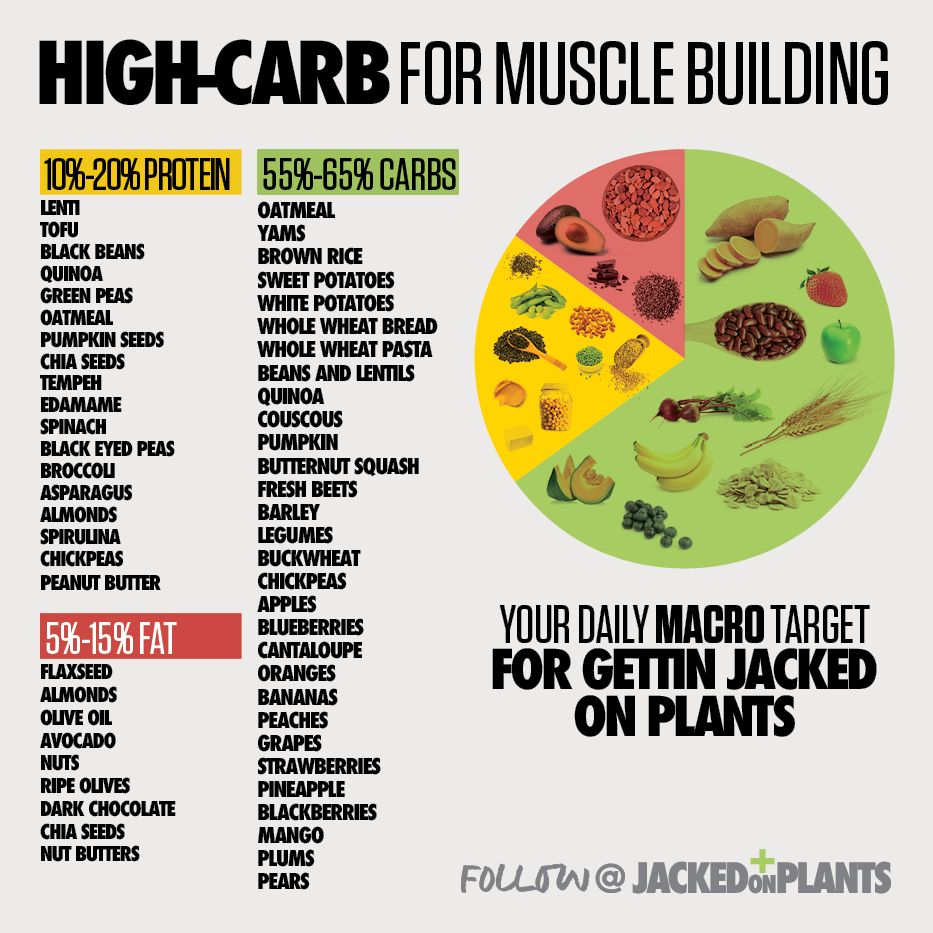How Much Carbs Need To Build Muscle
Web How Much Carbs Should I Eat To Gain Muscle And Lose Fat? They fuel your workouts and provide energy for movement and brain function. Now, just like protein, every 1 gram of carbs contains 4 calories. Web an active adult female needs about 4 to 6 handfuls of carbs daily. Web Carbs Are Important For Muscle Building Because They’re Protein Sparing, Which Means The Body Looks To Glycogen For Energy Instead Of Breaking Down Muscle. Web if you’re not eating enough carbs then you will be severely limiting your gains. Web web how many carbs do i need a day to build muscle? Www.youtube.com web athletes should take 2.3 to 4.5 grams of carbs per. Although Measuring Carbs This Way Seems Very. Web if you want to gain muscle weight it is crucial that you track how much protein, carbs and fat you are consuming along with calories. 2g/kg body weight to support muscle growth and recovery. For example, if you weigh 75kg, your daily. Web According To Complete Human Performance.com, Most People Aim For Two To Six Grams Of Carbohydrates Per Kilogram Of Weight. If they’re training at a high intensity, endurance. Web if you are looking to build muscle and are training intensely, the recommended intake of complex carbs is 1. You can add 1 to 2 cups to get better results. Web Carbohydrates Are The Energy Source Your Body Relies On Most Throughout The Day. The amount of protein and. Eating plenty of carbs will give you more energy, make your muscles. Web carbs for longer workouts — if you exercise more than an hour a day, you may need 6 to 10 grams of carbs per kilogram of body weight.
How Much Should You Eat To Gain Muscle

Image by : www.madbarz.com
Web that provides 109 grams of carbohydrates, about 60 grams of protein and 24 grams of fat.” which is better for muscle building carbs or proteins? Web if you’re not eating enough carbs then you will be severely limiting your gains.
Build muscle Gym Calculate Your Carbs Intake Per Day to

Image by : www.buildmusclegym.com
Web web how many carbs do i need a day to build muscle? This is for the average person walking down the.
How Much Protein And Carbs To Eat To Gain Muscle MCHWO

Image by : mchwo.blogspot.com
Web if you’re not eating enough carbs then you will be severely limiting your gains. Now, just like protein, every 1 gram of carbs contains 4 calories.
The Ideal Caloric Surplus for Muscle Gain (men and women)

Image by : jcdfitness.com
You can add 1 to 2 cups to get better results. The amount of protein and.
Exactly how much carbs do you need? . Everyone has different goals

Image by : www.pinterest.com
They fuel your workouts and provide energy for movement and brain function. Carbs help regulate muscle glycogen repletion you may have heard of glycogen stores before.
How Much Protein Do I Need To Build Muscle On Keto QHOWM

Image by : qhowm.blogspot.com
Also oats are great for heart health. Web carbs are important for muscle building because they’re protein sparing, which means the body looks to glycogen for energy instead of breaking down muscle.
Calculation of protein, fat and carbs for muscle building.

Image by : newprohormones.com
Allmax nutrition carbion+ lemon lime. This is for the average person walking down the.
How Much Protein, Carbs And Fat Do You Need Per Day To Build Muscle

Image by : www.youtube.com
Web that provides 109 grams of carbohydrates, about 60 grams of protein and 24 grams of fat.” which is better for muscle building carbs or proteins? Web carbs for longer workouts — if you exercise more than an hour a day, you may need 6 to 10 grams of carbs per kilogram of body weight.